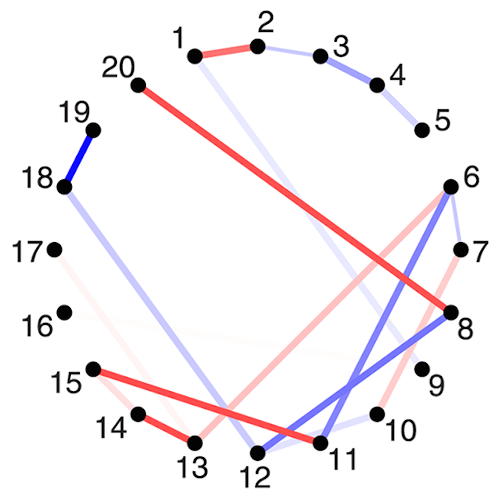
Delayed correlations improve the reconstruction of the brain connectome
Mite Mijalkov, Joana B. Pereira & Giovanni Volpe
PLoS ONE 15(2), e0228334 (2020)
doi: https://doi.org/10.1371/journal.pone.0228334
The brain works as a large-scale complex network, known as the connectome. The strength of the connections between two brain regions in the connectome is commonly estimated by calculating the correlations between their patterns of activation. This approach relies on the assumption that the activation of connected regions occurs together and at the same time. However, there are delays between the activation of connected regions due to excitatory and inhibitory connections. Here, we propose a method to harvest this additional information and reconstruct the structural brain connectome using delayed correlations. This delayed-correlation method correctly identifies 70% to 80% of connections of simulated brain networks, compared to only 5% to 25% of connections detected by the standard methods; this result is robust against changes in the network parameters (small-worldness, excitatory vs. inhibitory connection ratio, weight distribution) and network activation dynamics. The delayed-correlation method predicts more accurately both the global network properties (characteristic path length, global efficiency, clustering coefficient, transitivity) and the nodal network properties (nodal degree, nodal clustering, nodal global efficiency), particularly at lower network densities. We obtain similar results in networks derived from animal and human data. These results suggest that the use of delayed correlations improves the reconstruction of the structural brain connectome and open new possibilities for the analysis of the brain connectome, as well as for other types of networks.